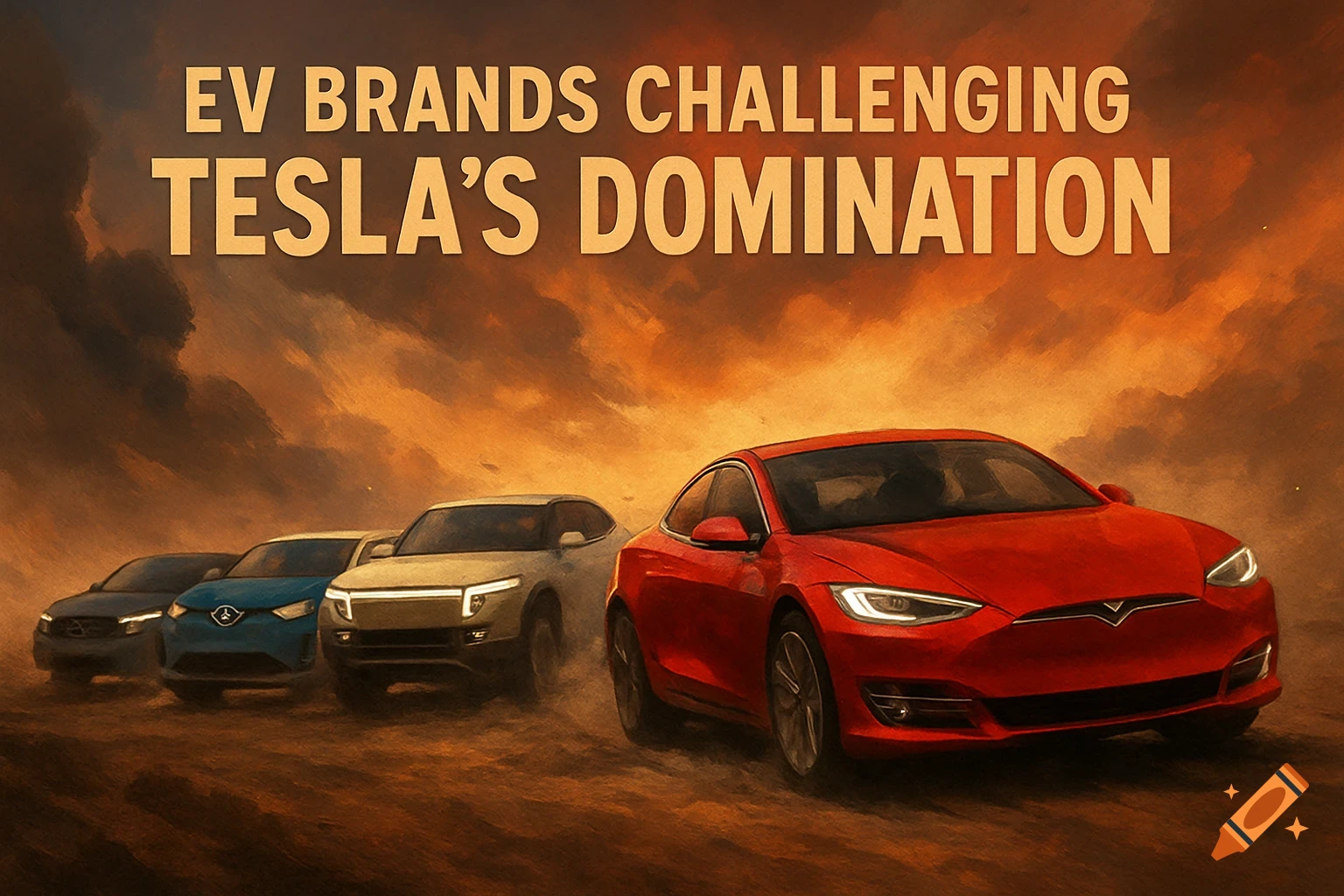Meet the New Players Challenging Tesla’s Electric Car Crown
(Simplified for Everyone!)
Tesla has long been the top name in electric vehicles (EVs), but a wave of fresh competitors—many from China—are now racing to take the lead by offering cheaper prices, better safety, and cars that go farther on a charge. Here’s a breakdown of the key challengers shaking up the EV world:
Top Contenders 🌟
-
BYD
- Why they’re winning: Best all-around choice.
- Stats:
- Sells over 2.6 million EVs.
- Prices: $13,900 (basic) to $65,830 (luxury).
- Drives ~445 km per charge (like driving from L.A. to San Francisco!).
- Top safety ratings.
- Key Strength: Balances affordability and quality.
-
SAIC Maxus
- Why they’re winning: Insanely low prices.
- Stats:
- Cheapest EV starts at $4,460 (yes, under $5k!).
- Perfect 5-star safety score.
- Range: ~365 km per charge.
- Perfect for: Budget-focused shoppers who still want safety.
-
Changan
- Why they’re winning: Safety superstar.
- Stats:
- Best-in-class 95% adult safety rating.
- Range: ~450 km per charge.
- Mid-price option: Deepal SL03 starts at $16,400.
-
Wuling
- Why they’re winning: Tiny car, huge sales.
- Stats:
- Sold 370,000+ units.
- Starts at $6,400.
- Mini EV ideal for city driving (300 km range).
- Aion
- Why they’re winning: Longest range.
- Stats:
- Drives ~520 km per charge (enough for a road trip!).
- Prices: $17,800 to $29,000.
What Makes These Brands Stand Out?
- Prices: Most cost less than $30,000, while Tesla’s cheapest model starts around $39,000.
- Safety: Many have top safety scores (like earning straight A’s in crash tests).
- Practicality: Designed for everyday drivers needing reliable, affordable EVs.
Why Isn’t Volkswagen or Hyundai Higher?
Traditional car giants like Volkswagen and Hyundai lag behind because:
- Higher prices (Volkswagen’s ID.4 costs more than many Chinese rivals).
- Sales and innovation move slower compared to fast-growing Chinese brands.
The Big Picture
- Shift to China: The EV market is leaning toward Chinese brands because they focus on real-world value—not just flashy tech or brand names.
- Buyers Care About:
- 💵 Price
- 🛡️ Safety
- 🔋 Range (how far you can drive without charging).
As one expert put it: “People now care less about the brand logo and more about what the car actually offers. If it’s affordable, safe, and goes the distance, they’ll buy it.”
What This Means for You
If you’re shopping for an EV, look beyond Tesla! Newer brands offer great options, especially if you want to save money without sacrificing safety or performance. The electric car revolution isn’t just about luxury—it’s becoming a practical choice for everyone.
(Want more details? Check out the full study [here].)
| Visual Summary | Brand | Price Range | Average Range | Safety Rating |
|---|---|---|---|---|
| BYD | $14k-$66k | 445 km | ⭐⭐⭐⭐⭐ | |
| SAIC Maxus | $4.5k-$20k | 365 km | ⭐⭐⭐⭐⭐ | |
| Wuling | $6k-$10k | 300 km | ⭐⭐⭐⭐ | |
| Aion | $18k-$29k | 520 km | ⭐⭐⭐⭐ |

